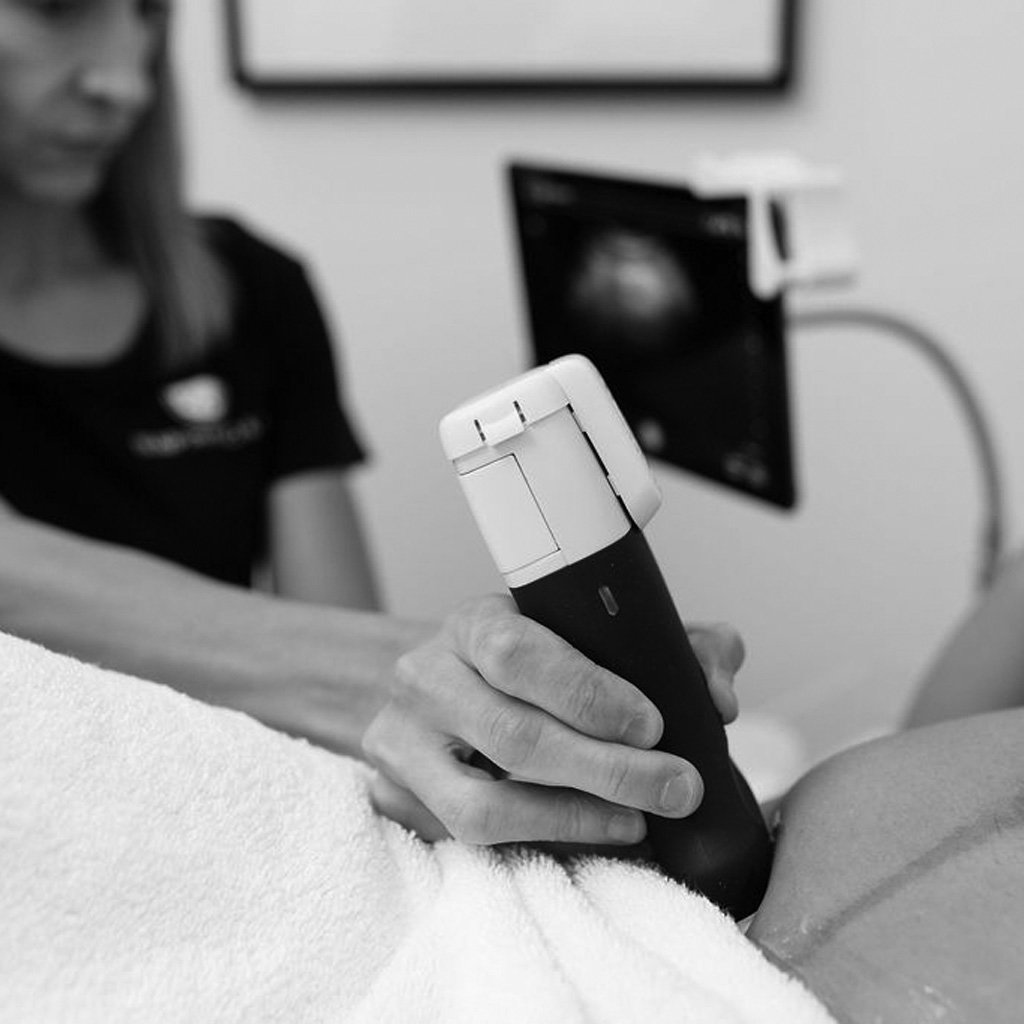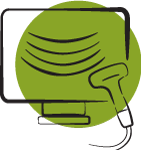

Rehabilitative Ultrasound Imaging (RUSI)
Non-invasive Pelvic Floor Imaging
Rehabilitative ultrasound imaging is a relatively new application that involves using a gentle probe and a conductive gel to transmit sound waves through the tissues to see the underlying structures in real time. We use this information to inform treatment plans to help clients improve muscle identification, activation and coordination, motor learning tasks, and functional integration into movement and through exercise. RUSI can also be used as a form of biofeedback and is used in the assessment and treatment of bladder, bowel and abdominal wall conditions.
A special note to RUSI clients:
Please ensure you have a relatively full bladder when you come to your appointment. The bladder needs to have fluid in it for us to be able to visualize the pelvic structures and take any necessary measurements. Please drink 500ml of water, 1 hour before your visit to the clinic.
Rehabilitative Ultrasound Imaging
| Service Duration | Service Cost |
|---|---|
| Pelvic Floor Physiotherapy + RUSI Initial Assessment (55 min) | $195 |
| Pelvic Floor Physiotherapy + RUSI Follow Up (45 min) | $137 |
| Pelvic Floor Physiotherapy + RUSI Follow Up (Extended) (55 min) | $195 |